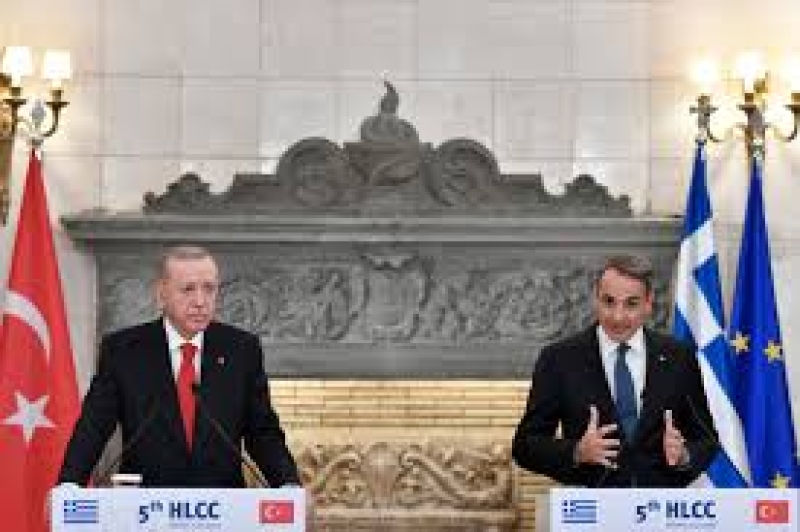- Yunus Urges Voters to Shape a ‘New Bangladesh’ |
- Bangladesh Polls: Campaign Ends as Voters Weigh Pledges |
- Bangladesh Heads to First Gen Z-Driven Competitive Poll |
- EC Lifts Mobile Phone Ban, Bars Photos Inside Booths |
- Youth participation vital to BD’s democratic future: C’wealth Group |
Greek PM to visit Turkey in quest for better relations

Greece's Prime Minister Kyriakos Mitsotakis will be received Monday in Ankara by Turkish President Recep Tayyip Erdogan, in the latest sign of warming relations between the NATO neighbours.
After decades of tensions, occasionally broken by brief periods of reconciliation, the day-long visit follows a trip by Erdogan to Greece in December and marks a new phase in their relations, diplomats said.
In December, the regional rivals -- who are divided over the island of Cyprus and issue of migration through their respective waters -- signed a declaration calling for "friendly and good neighbourly relations, recognising the importance of a mutual respect and peaceful coexistence".
But this appeasement, helped also by solidarity after an earthquake killed more than 50,000 in southeastern Turkey in February 2023, has been undermined by Turkey converting another former Byzantine church into a mosque, reports BSS.
After four years of restoration, the former Kariye Orthodox church in Istanbul re-opened as a mosque on May 6.
The 2020 decision to convert the church came after Muslim services resumed at the 6th century former Byzantine cathedral of Hagia Sophia. The landmark building had been a museum since 1935.
The changes were seen as part of Erdogan's efforts to galvanise his more conservative and nationalist supporters.
"There's no shortage of mosques in the city. That is no way to treat cultural patrimony," Mitsotakis said a week ago, although he has also said that "channels of conversation must remain open."
Mitsotakis told Greek television station Alpha TV on Saturday that he will use Monday's talks to push Erdogan to "reverse" Kariye's conversion.
- 'Provocation' -
Greek Foreign Minister Giorgos Gerapetritis last Monday called the move a "provocation" but reiterated that "Athens is seeking as long a period of calm as possible in Greek-Turkish relations."
Last December's meeting did lead to some breakthroughs, such as new special visas for Turks to visit Greek islands near the Turkish coast. That has led to a tripling of Turkish visitors.
And Erdogan has not repeated any of his earlier threats to invade Greek islands to prevent their supposed militarisation -- threats that led the US Congress to block deliveries of F-16 fighters to Turkey.
That veto was lifted in January, at the same time as the United States approved the delivery of F-35s to Greece.
Disagreements remain over Cyprus, which since Turkey's military intervention in 1974 has been divided into the internationally-recognised state of Cyprus in the south, and the Turkish Republic of Northern Cyprus, which is recognised only by Turkey.
Turkey and Greece have also struggled to cooperate on migration. The seas around both countries are used by migrants from Asia and Africa trying to reach Europe.

